Hummus, the rich, creamy dip, is central to Middle Eastern cuisine. Most of us eat it because it’s so tasty; but we don’t often consider the health benefits of hummus. But you can be sure that hummus is a good-for-you treat — it consists mainly of chickpeas and sesame seeds. Lemon and garlic are also intrinsic to its unique flavor — and variations can include spices, peppers, olives, and other ingredients to make a great thing even better. Hummus is most often used as a dip for fresh pita, but there are other ways to use it. It’s great in wraps, as a potato topping, and even on pizza in place of tomato sauce.
You can buy hummus from the store, but for all the healthy goodness that it comes with, it’s always better to make it yourself at home — it’s easy to do — here’s our basic recipe, with variations. Despite its delicately complex taste, hummus is actually surprisingly easy to make.
1. Hummus is Abundant in Plant-based Protein
If you’re vegan or you’re following a plant-based diet, you should try to consume hummus regularly. The main ingredient for hummus which are chickpeas are an excellent source of plant-based protein.
One 100g serving of chickpeas contains 20.47 grams of protein. With this much protein in chickpeas, it’s no wonder, they can easily make you feel full after just a few handfuls. This keeps you from sneaking unhealthy snacks into your everyday diet which can help a lot if you’re trying to control your weight.
What’s more is that the way hummus is eaten often allows for the consumption of what we can call “complete proteins.” Often, hummus is eaten with pita bread or other types of whole grain which contain another type of proteins. When consumed with the plant-based proteins found in chickpeas, these make up what is called a complete protein or proteins that contain all the essential amino acids needed to be converted and used for energy.
Chickpeas aren’t the only ingredients present in hummus that’s rich in protein. Tahini, a rich and creamy paste made from ground up sesame seeds, is also rich in the protein called methionine. Just like the proteins in chickpeas, the methionine proteins can also form a complete protein that the body can use for energy when consumed with other protein-rich foods.
2. Hummus is Rich in Various Vitamins and Minerals
Because of the healthy ingredients included in the making of hummus, it is only natural that this delicious dip is loaded in vitamins in minerals. Again, if you want to get the full benefits, going for natural and homemade is the best way to go since it’s really the only way to keep away from preservatives and all that other stuff your body doesn’t need.
Chickpeas, the main ingredients in hummus, is loaded with iron, folate, phosphorus and B vitamins. Hummus also contains lemon juice which, as we all know, is a great source of vitamin C as well as antioxidants. Another ingredient, tahini, which is made of sesame seeds is loaded with copper, zinc, magnesium, calcium, and phosphorous. Garlic, which adds flavor to hummus, is rich in antioxidants and it also has a ton of trace minerals along with a good number of vitamins loaded in it.
If you’re looking for a great way to get a good amount of vitamins and minerals incorporated into your daily diet, eating hummus with your daily meals might just be what you need to do.
Make your own: Classic Hummus, with Variations
3. Hummus Can Keep Your Bones at Optimal Health
Your bones are one of the most important parts of your body that you should really pay attention to and take care of because without bones, you won’t be able to do much or move around much at all. Aside from serving as the main framework that supports your body, your bones are responsible for a ton of other things as well. These things include, but are not limited to protecting your internal organs from injury, making it possible for you to be mobile in every way you can think of, producing blood cells, storing essential minerals, and more.
So now the question is: “how do you take care of your bones?” Well, making sure it gets the right amount of calcium is a start. Calcium is the mineral that keeps your bones and teeth strong. In fact, 99% of the calcium that you consume goes to your bones and your teeth and this mineral alone makes up about 2% of your total body weight.
Blood clotting, cell signaling, nerve function, and muscle contraction -- these are just some of the things that your body does and uses calcium for. The recommended daily intake of calcium for adults is anywhere from 1,000 to 1,300 milligrams per day, depending on your age and gender
Without enough calcium in your diet, you could suffer from calcium deficiency which could lead to other diseases like osteoporosis and rickets, among many others. Be wary, though, because too much calcium in your diet could also be bad for your health. Consuming too much calcium can lead to kidney stones and constipation, especially when you get your calcium from supplements.
Now, where does hummus fit into all of this, you may be wondering. Well, sesame seeds, which is one of the ingredients in making tahini used in hummus, is an excellent source of calcium. You can get 1404 mg of calcium in one cup (144g) of sesame seeds alone. Chickpea, the main ingredient used in hummus, is also a rich source of calcium and is one of the top sources of calcium for many vegans.
See also: Flavored Hummus Recipes
4. Hummus Can Help Lower Cholesterol
Eating delicious foods is one of the pleasures that we get out of life, but it comes with a ton of risks and one of them is getting your cholesterol up to dangerously high levels.
In order to keep yourself healthy, you need to maintain a good and healthy level of cholesterol and if you’re the kind who likes foods that are too rich and indulgent, this may be a problem for you. Luckily, there are plenty of foods out there that can help you lower your cholesterol and chickpeas which is the main ingredient used in hummus is one of those foods.
According to research, there is a group of foods called “pulses” which can help lower your cholesterol levels when consumed regularly. These foods include lentils, peas, beans, and chickpeas, among others.
According to a study by Australian lecturer Jane Pitaway where two groups consumed the same amount of fiber for three years with the first group getting their fiber from daily consumption of chickpeas and the second group getting their fiber from wheat, cereal, and other wheat products, the group that consumed chickpeas was shown to have consumed less fat and had a reduction in cholesterol, too.
You might also like: 5 Great Ways to Use Hummus
5. Hummus is A Great Intro to the Mediterranean Diet
There are plenty of diet plans out there that are designed and marketed to help you with a problem area or two in your health. There are those that are designed to help you lose weight and others that are curated to give you better cardiovascular health. There are also those that are meant to boost your energy levels so you can be more active and productive.
Most of the time, however, people are turned off by these diets because they’re either bland and boring or just too hard to follow religiously. So, wouldn’t it be nice if there was a diet that’s not only tasty and delicious but also actually good for your overall health?
That’s where the Mediterranean Diet comes in. Unlike most diets, this is something that tastes good, is easy to follow, and is not just great for one aspect of your health but for your overall wellness as well. In fact, the Mediterranean Diet has been shown to lower the risk of stroke and heart disease by 30% in a study conducted in 2013.
If you’re thinking of getting started on this diet but have no idea how, consuming hummus regularly is a great way to do so. Some of the foods included in the Mediterranean Diet are beans, legumes, olive oil, and garlic, among others. These, as you know, are all included in the healthy goodness that is hummus.
6. Hummus Can Help You With Your Weight Loss Journey
Everyone wants to be fit and healthy and everyone wants to look good, but looking for food that’s healthy, delicious and will help you lose weight is the ultimate challenge.
If you love the taste of hummus, though, you might be off to a good start. Hummus is one of the foods that can help you with your weight loss journey and that is because this tasty treat is loaded with a good amount of monounsaturated fats that can help reduce belly fat and promote weight loss.
Now, you may be confused as to how consuming fats make you lose weight. Most people think that, in order to lose weight, one should cut out fat from their diet. This is not true at all. Fat is essential in any diet. You just need to make sure that you are consuming the right kinds of fat and monounsaturated fat is one of those.
For lots more verifiable benefits of hummus, link to the rest of this article at 15 Health Benefits of Hummus.


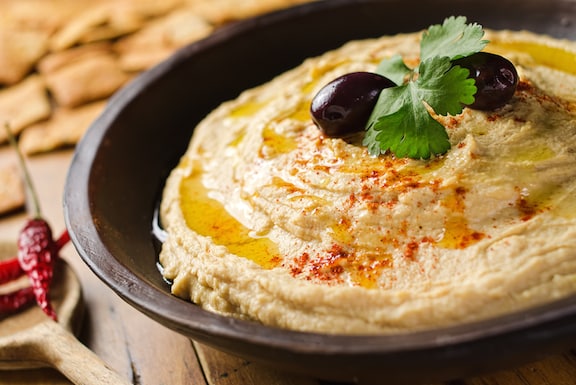
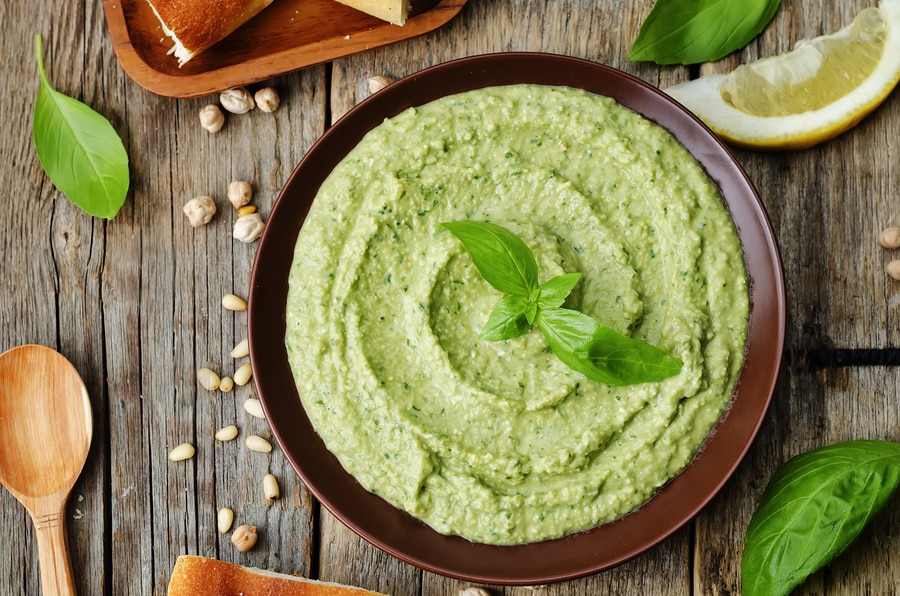


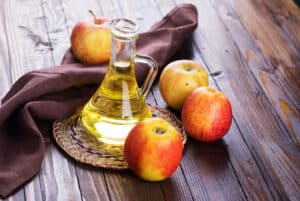
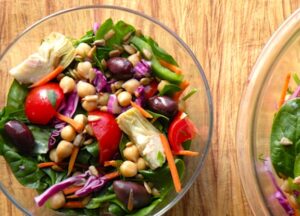
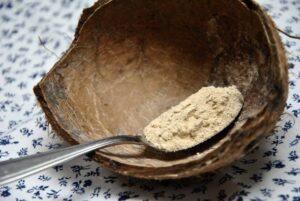
Comments
No Comments